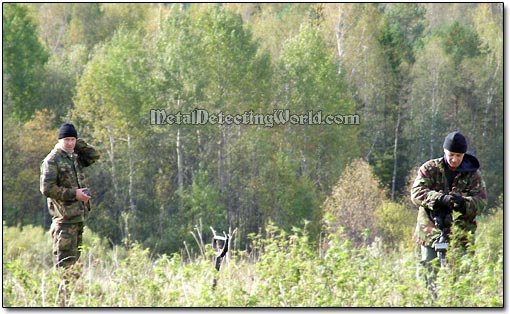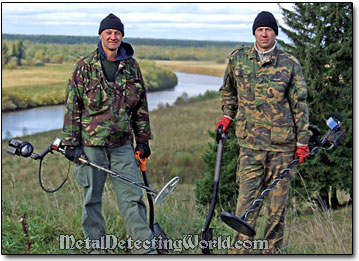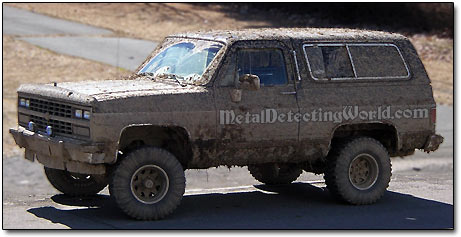Metal Detecting Research and Exploration - A Complete Guide, page 42
Footwork Research and Observation
THE FOOTWORK CONCEPT
Along with map research, footwork (or transecting) is equally important for finding old homestead sites or any other good places for metal detecting. The footwork should provide a general impression of the metal detecting resources of an area by identifying obvious or well-known sites, checking the existence and condition of hunt sites identified by research, and identifying areas where certain kinds of hunt sites are likely to occur.
The footwork can be conducted either before or after the map research. In former case, footwork is necessary when you lack any leads and just assume that there might be something potential in the area in focus. For instance, I discovered great detecting places at the locations that showed nothing on maps. In latter case, transecting is needed either to locate an actual site, which has been discovered during the research, or to make sure no good treasure hunting location is overlooked or left out.
Pinpointing the Location of Former Settlement's Site

This article includes some tips on the footwork research during the warm months of the year. The footwork carried out during the winter is another effective type of research which is described in my article "Exploring White Spots in the Winter."
While exploring any area, whether you are in the woods or in the open, the success in footwork is based on how well you observe the surroundings, notice the details, and analyze all visual information available. These abilities are not hard to develop and easy come with experience. Your curiosity and logic are your allies in this process. The rule of the thumb is that when you see anything unnatural, i.e. not created by natural and geophysical processes and sticking out of landscape, investigate it!
Any physical evidence of past human activities may indicate a potentially great metal detecting site. Every time you discover a potential location, you should record it somehow not to forget about it later.
Nowadays, modern technology such as mapping software for GPS navigation has made the recording of footwork finds - spotted detecting locations, much easier as the position coordinates of discovered sites can be put into GPS unit and then placed correctly on the georeferenced maps for further studying. These coordinates will allow you to map all potential metal detecting sites with their precise locations in the area and use this information for further research, or easily find the hunt sites on the ground during your metal detecting outings - no location would be forgotten.
If you use a wireless GPS unit during your metal detecting outings, chances are you will need to use a GPS Coordinate Converter at some point. You can find a few basic tools which convert latitude and longitude coordinates between three regularly used units at http://www.jeepreviews.com/wireless-gps-coordinates/ (copy the link and paste it into your browser window) or other places.
The various forms of physical evidence related to the past human activities exist everywhere. All you have to do to find them is to observe and analyze what you see every time when you pass through the area. When your eyes are trained, you will do the "spotting" automatically and discover lots of potential metal detecting sites. The things you should look for and investigate during your footwork are described on the following pages.
The term "footwork" applies to both scouting the terrain on foot and traversing it with 4x4 off-road vehicle or ATV. In the former case, the more people participate, the better. With an extra pair of eyes, more area gets explored quickly. Sometimes the light-weight metal detectors are used for immediate examination of locations for possible presence of signals.
Sergei and Andrei Scouting the Area with Light-Weight Detectors

Transecting the area on "wheels" is the most efficient when a vast territory must be explored. A 4x4 vehicle will not only spare you a ton of physical efforts, but also provide safety and shelter if any extreme situation arises. Unlike the 4x4's for treasure hunting expeditions, your 4wd vehicle does not have to be especially equipped for simple footwork searching. You can reed more on 4x4's for treasure hunting expeditions here.
4x4 for "Wheelwork" Search
